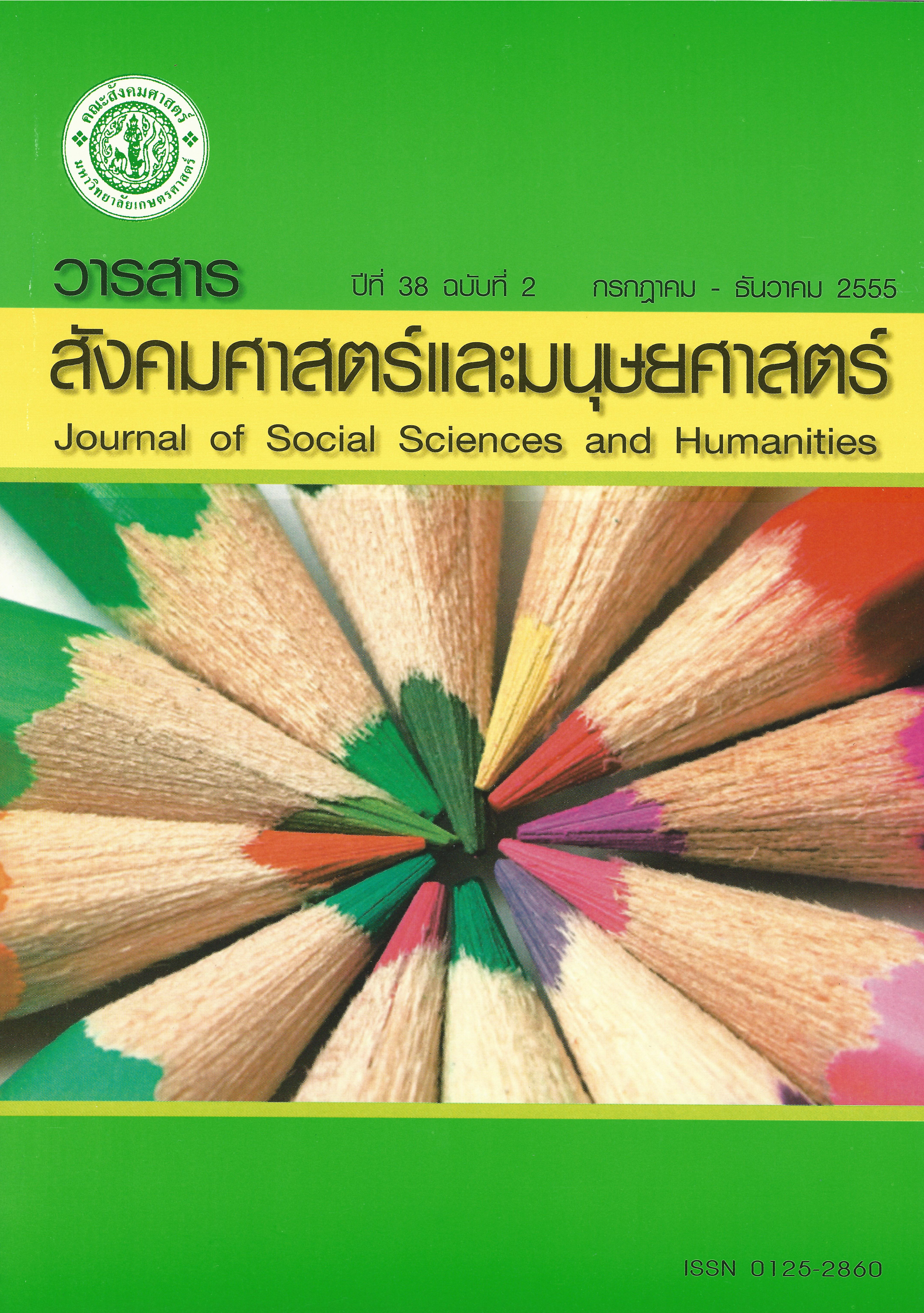ปัจจัยที่มีอิทธิพลต่อการยอมรับการใช้น้ำมันแก๊สโซฮอล์ E85 ของผู้ขับขี่รถยนต์ส่วนบุคคลที่มาใช้บริการที่สถานีบริการน้ำมันแห่งหนึ่ง
Main Article Content
บทคัดย่อ
การวิจัยครั้งนี้มีวัตถุประสงค์เพื่อศึกษา 1) ระดับความรู้เกี่ยวกับน้ำมันแก๊สโซฮอล์ E85 ทัศนคติต่อการใช้น้ำมันแก๊สโซฮอล์ E85 และการยอมรับการใช้น้ำมันแก๊สโซฮอล์ E85 ของผู้ขับขี่รถยนต์ส่วนบุคคลที่มาใช้บริการที่สถานีบริการน้ำมันแห่งหนึ่ง 2) เปรียบเทียบการยอมรับการใช้น้ำมันแก๊สโซฮอล์ E85 ของผู้ขับขี่รถยนต์ส่วนบุคคลจำแนกตามช่องทางการสื่อสาร 3) ความสัมพันธ์ระหว่างการยอมรับการใช้น้ำมันแก๊สโซฮอล์ E85 ของผู้ขับขี่รถยนต์ส่วนบุคคลกับความรู้เกี่ยวกับน้ำมันแก๊สโซฮอล์ E85 และทัศนคติต่อการใช้น้ำมันแก๊สโซฮอล์ E85 และ 4) ปัจจัยที่สามารถร่วมกันพยากรณ์การยอมรับการใช้น้ำมันแก๊สโซฮอล์ E85 ของผู้ขับขี่รถยนต์ส่วนบุคคล กลุ่มตัวอย่าง คือ ผู้ขับขี่รถยนต์ส่วนบุคคลที่มาใช้บริการที่สถานีบริการน้ำมันแห่งหนึ่งในกรุงเทพมหานคร จำนวน 385 คน สถิติที่ใช้ได้แก่ค่าร้อยละ การทดสอบแบบที สัมประสิทธิ์สหสัมพันธ์ของเพียร์สัน และการวิเคราะห์การถดถอยพหุแบบขั้นตอน ผลการวิจัยพบว่า 1) ผู้ขับขี่รถยนต์ส่วนบุคคลมีระดับทัศนคติต่อการใช้น้ำมันแก๊สโซฮอล์ E85 และการยอมรับการใช้น้ำมันแก๊สโซฮอล์ E85โดยรวมอยู่ในระดับปานกลาง โดยมีความรู้เกี่ยวกับน้ำมันแก๊สโซฮอล์ E85 โดยรวมอยู่ในระดับสูง 2) ผู้ขับขี่รถยนต์ส่วนบุคคลได้รับข้อมูลข่าวสารจากช่องทางการสื่อสารต่างกันมีการยอมรับการใช้น้ำมันแก๊สโซฮอล์ E85 ไม่แตกต่างกัน 3) ความรู้เกี่ยวกับน้ำมันแก๊สโซฮอล์ E85 และทัศนคติต่อการใช้น้ำมันแก๊สโซฮอล์ E85 มีความสัมพันธ์ทางบวกกับการยอมรับการใช้น้ำมันแก๊สโซฮอล์ E85 ของผู้ขับขี่รถยนต์ส่วนบุคคลอย่างมีนัยสำคัญทางสถิติที่ระดับ .01 (r = .316 และ .824 ตามลำดับ) และ 4) ความรู้ด้านการใช้น้ำมันแก๊สโซฮอล์ E85 และทัศนคติต่อการใช้น้ำมันแก๊สโซฮอล์ E85 สามารถร่วมกันพยากรณ์การยอมรับการใช้น้ำมันแก๊สโซฮอล์ E85 ของผู้ขับขี่รถยนต์ส่วนบุคคลได้ร้อยละ 68.5 อย่างมีนัยสำคัญทางสถิติที่ระดับ .001
Factors Affecting Private Car Users’ Adoption of Gasohol E85 Usage at a Gas Station
The objectives of this research were to study: 1) the level of knowledge of Gasohol E85, attitude towards Gasohol E85 and Gasohol E85 adoption for usage in private cars; 2) the comparison of sources of information of Gasohol E85 adoption in use for private cars; 3) the relationship between Gasohol E85 adoption in use to drivers, knowledge of Gasohol E85, and attitude towards Gasohol E85; and 4) the factors that could predict Gasohol E85 adoption in use for private cars at a gas station. The sample consisted of 385 private car users at a gas station in Bangkok. Statistics used included the percentages, the t-test, the Pearson’s product moment correlation coefficient, and the stepwise multiple regression analysis.
The results were as follows. Firstly, private car users had moderate level of attitude towards Gasohol E85, and the overall Gasohol E85 adoption while the knowledge of Gasohol E85 was at the high level. Secondly, private car users with different sources of information had statistically the same Gasohol E85 adoption. Thirdly, usage knowledge of Gasohol E85 and attitude towards Gasohol E85 were positively correlated with Gasohol E85 adoption at the significance level of 0.01. And finally, usage knowledge of Gasohol E85 and attitude towards Gasohol E85 could jointly predict 68.5 percent of the Gasohol E85 adoption of private car users at the significance level of 0.001.


